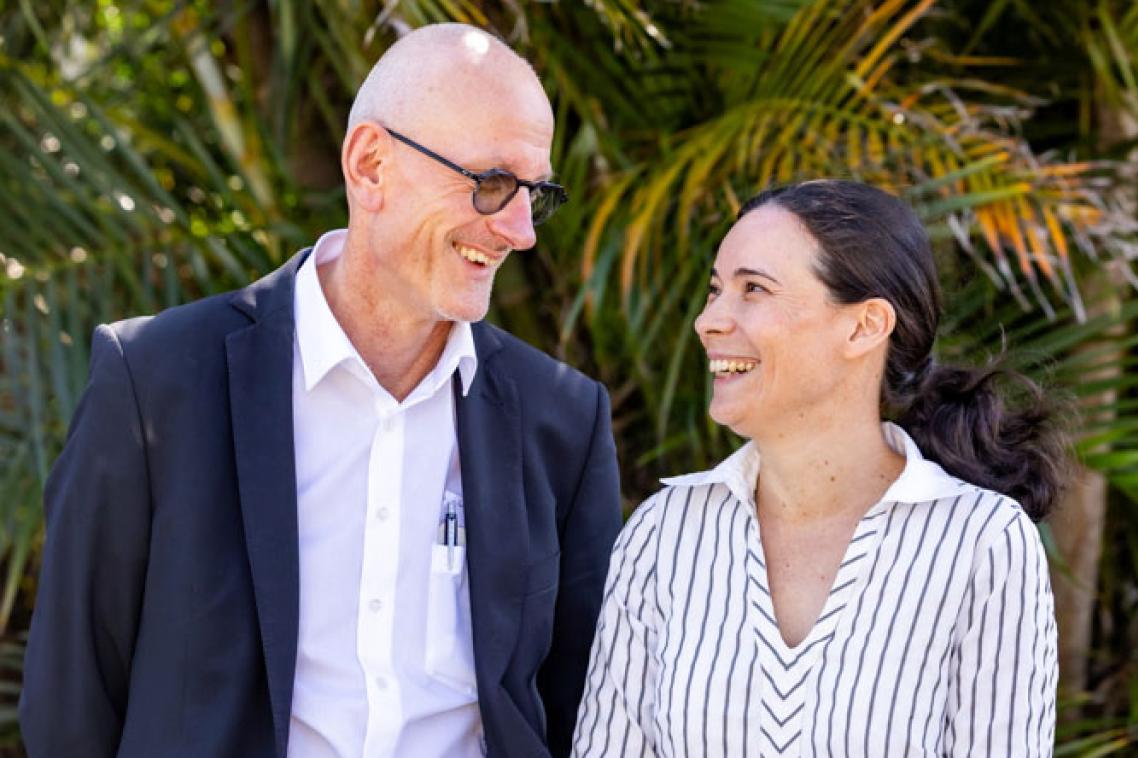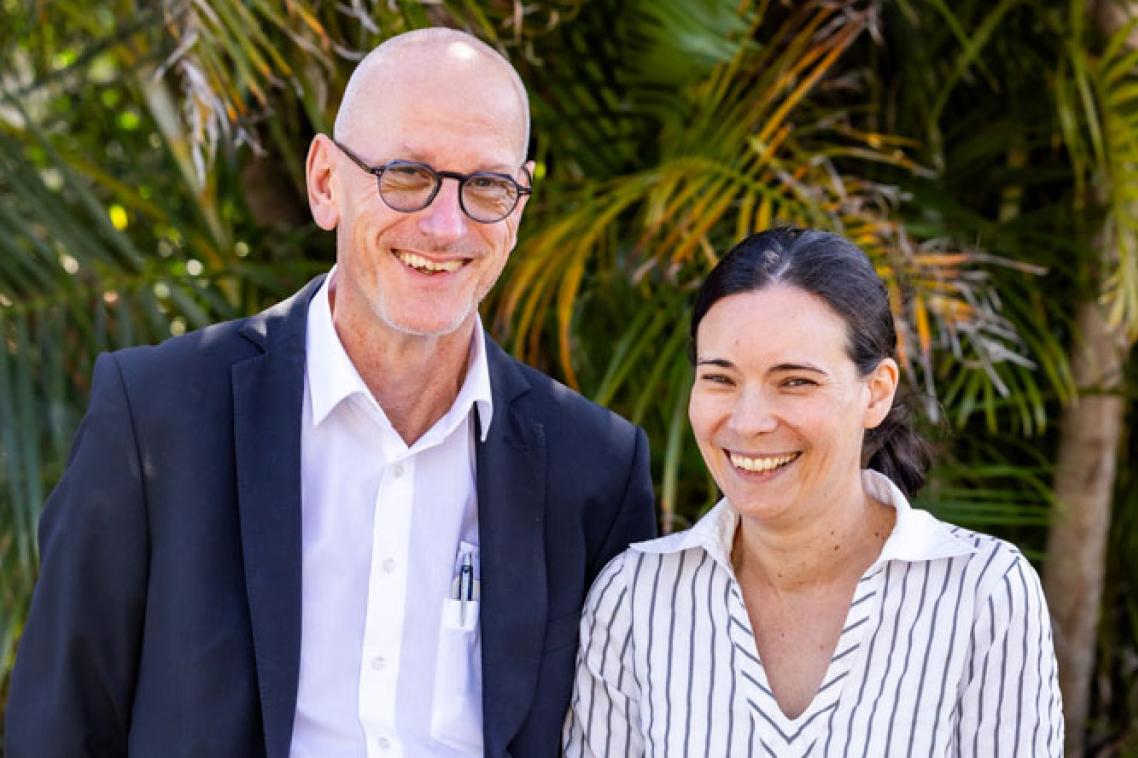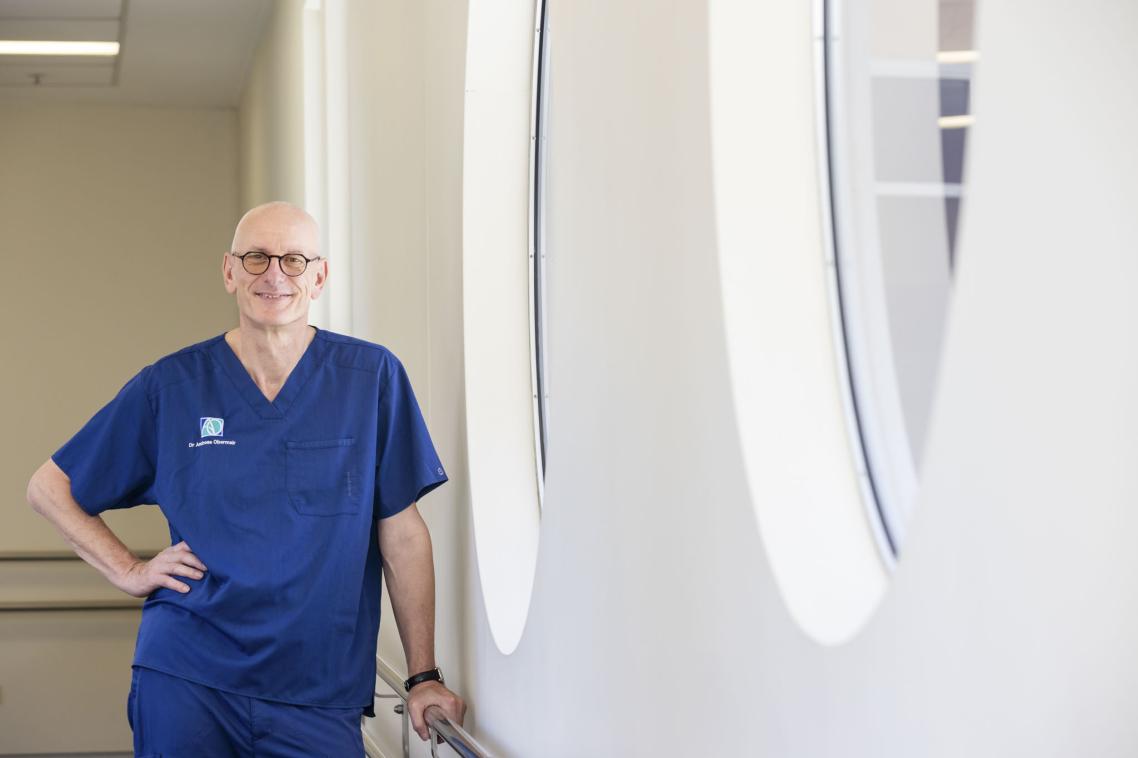A meeting of the minds that could transform treatment
Key points
- Endometrial cancer is the most common gynaecological cancer in Australia
- The feMMe molecular project discovered that certain features in a woman’s tumour and blood could predict their response to treatment
- In 2026, the team will launch Australia’s first randomised clinical trial in vulvar cancer, another largely under-researched area
“Professor Obermair had launched a new clinical trial, feMMe, and was collecting tissue and blood samples from participants, but he wasn’t sure how to analyse them,” Dr Baxter recalls.
“He had the clinical expertise, and I had the molecular expertise.”
What began in 2018 as a one-day-a-week collaboration to grow QCGC’s research capabilities, grew into a near full-time role.
Dr Baxter now leads the analysis of tissue and blood specimens for all QCGC Research clinical trials.
“All our research is centred around clinical trials that seek to find kinder and more effective treatments for women with gynaecological cancer,” Dr Baxter said.
Endometrial cancer is the most common gynaecological cancer in Australia, and unfortunately its incidence is rising - particularly among younger women and women living with obesity.
The LACE trial in 2017 transformed surgical practice worldwide by finding that laparoscopic hysterectomy - keyhole surgery - led to fewer complications and faster recovery than traditional open surgery.
The trial also found that obese women were more likely to experience surgical complications, sparking the feMMe trial — the first randomised clinical trial globally to explore non-surgical hormonal treatment for early-stage endometrial cancer.
After six months of treatment, 60 per cent of women showed no evidence of disease, but there was no way to predict who would respond to the treatment.
Enter the feMMe molecular project. The feMMe molecular project analysed the biobanked specimens and discovered that certain features in a woman’s tumour and blood could predict her response to treatment.
“It means we can now identify who is likely to benefit from non-surgical hormonal treatment, and opens the door to alternatives,” Dr Baxter explained.
It’s an approach the team hope will lay the foundation for a new era of personalised medicine and care. Young women could avoid a hysterectomy and preserve their fertility, and for women with obesity it could mean avoiding the risks of surgery.
One key finding from the feMMe molecular project was that women with mismatch repair-deficient tumours, those lacking a specific set of proteins, do not respond to hormonal treatment. Since testing for these proteins is already routine in Australian pathology labs, the discovery has had immediate clinical impact.
It also led to the launch of the SATELLITE trial, which is exploring immunotherapy as a non-surgical alternative for women who don’t respond to hormonal treatment.
“This is about finding the right key to unlock the right door,” said Dr Baxter.
“So, each woman can reach the destination she wants, whether that’s keeping her uterus, avoiding side effects, or simply having the best chance at recovery.”
The implications go beyond endometrial cancer. QCGC Research is now working with international collaborators to validate their findings and design new trials. They’re also applying their learnings to other gynaecological cancers, with a particular focus on vulvar cancer.
In 2026, the team will launch Australia’s first randomised clinical trial in vulvar cancer, another largely under-researched area. Like feMMe, the trial will include biobanking to pave the way for future molecular studies.
The vision is clear, a future where treatment is tailored to each woman’s biology and surgery isn’t the only option.
“This work is deeply personal,” said Dr Baxter.
“It’s about giving women choices. It’s about dignity. And it’s about hope.”

Dr Eva Baxter

Professor Andrea Obermair and Dr Eva Baxter

Professor Andrea Obermair and Dr Eva Baxter

Professor Andrea Obermair
